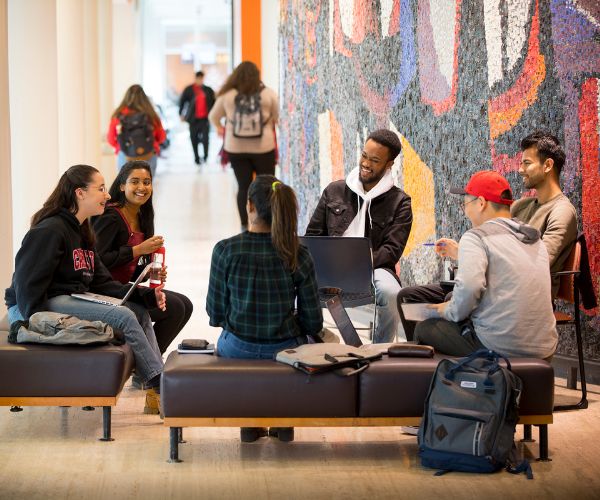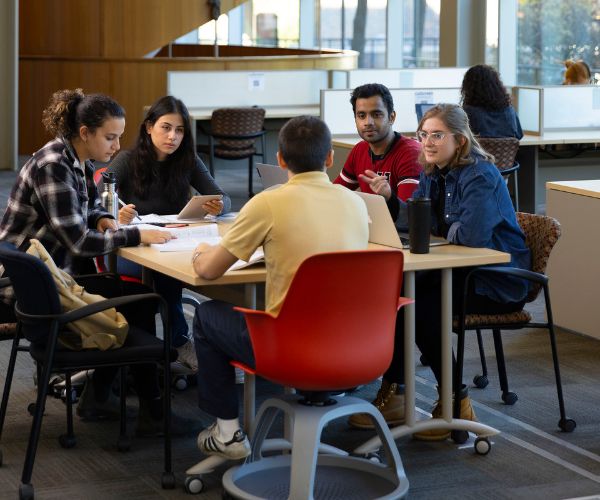Visit Carleton! Book your tour today.
Program Details
Why Criminology and Criminal Justice? Most of us consume a high dose of the three traditional ‘Cs’ of criminology and criminal justice: crime, cops and corrections. Fictional and news media coverage of criminalized individuals and criminal law actors and institutions are key components of our lives. Working towards greater justice requires time, energy, resources, commitment and imagination.
Criminology and Criminal Justice examines what is socially constituted as crime, why and whether we should punish, the origins and function of police and prisons, and how to think outside the box of criminal justice. The field of Criminology is key to understanding and achieving a more just society while also preparing students to become thoughtful, engaged and employable community members.
Our unique program provides a strong footing in criminology’s foundational disciplines: law, psychology, and sociology while also exposing students to insights from fields such as political science, Indigenous studies, critical race, gender and sexuality studies, among others.
Capital Advantage
Where better to study Criminology and Criminal Justice (CJS) than in Ottawa — the hub of research and employment for grassroots, provincial and federal justice-oriented organizations and agencies.
Work Experience
Gain hands-on experience through field placements in organizations such as the Crown Attorney’s Office, criminal law offices or social justice organizations. Work with researchers and policy analysts involved in criminal justice, transformative justice and crime prevention.
Personalize Your Program
Learn about penal and transformative justice, practices of criminalization, surveillance, prevention, policing, courts, sentencing and corrections. Add a concentration in Law, Sociology, or Mind and Behaviour. You will be able to choose one of these disciplines as a concentration but will be trained in all three throughout your degree.

Get started in Carleton360 to receive tailored information on our programs, student services and community.

Career Outcomes
Explore your passions, refine new skills and discover the career that’s right for you.
At the end of your degree, you will be prepared to enter the workforce having gained a robust understanding of penal and transformative justice, practices of criminalization, surveillance, prevention, policing, courts, sentencing and corrections.

Sample Courses
CRCJ 1000 - Introduction to Criminology and Criminal Justice
Overview of the field, including the foundational approaches of criminology and criminal justice, crime as an object of study; criminal law and criminality in Canada; (neo) classical, aetiological and social reaction perspectives; alternative criminologies.
PSYC 3402 - Criminal Behaviour
A review of theoretical and empirical research in the study of criminal behaviour. Examination of offender assessment and classification, prevalence and types of offenders, and effectiveness of offender treatment including understanding specific populations of offenders such as Indigenous offenders, women offenders and violent offenders.
Visit the Undergraduate Calendar to view a comprehensive list of course offerings for this program and discover the exciting things Carleton students are learning in the classroom!
Featured Stories
Read exciting stories from the Faculty of Public and Global Affairs
The program provides you with a lot of freedom, fluctuation and opportunity, especially in regard to future research in your project or thesis. I have nothing but amazing things to say about the program and the professors! The transition from high school to university is a big change and the workload can seem intense initially. If you ever need help on content or feel stressed, do not be afraid to approach professors for help! As scary as it may seem, they love speaking with students and are passionate about helping you succeed. Doing so also provides you with the opportunity to network which I think is the most essential component of university life. It comes in handy down the road, especially when looking for a supervisor for your project or thesis in your final year.


